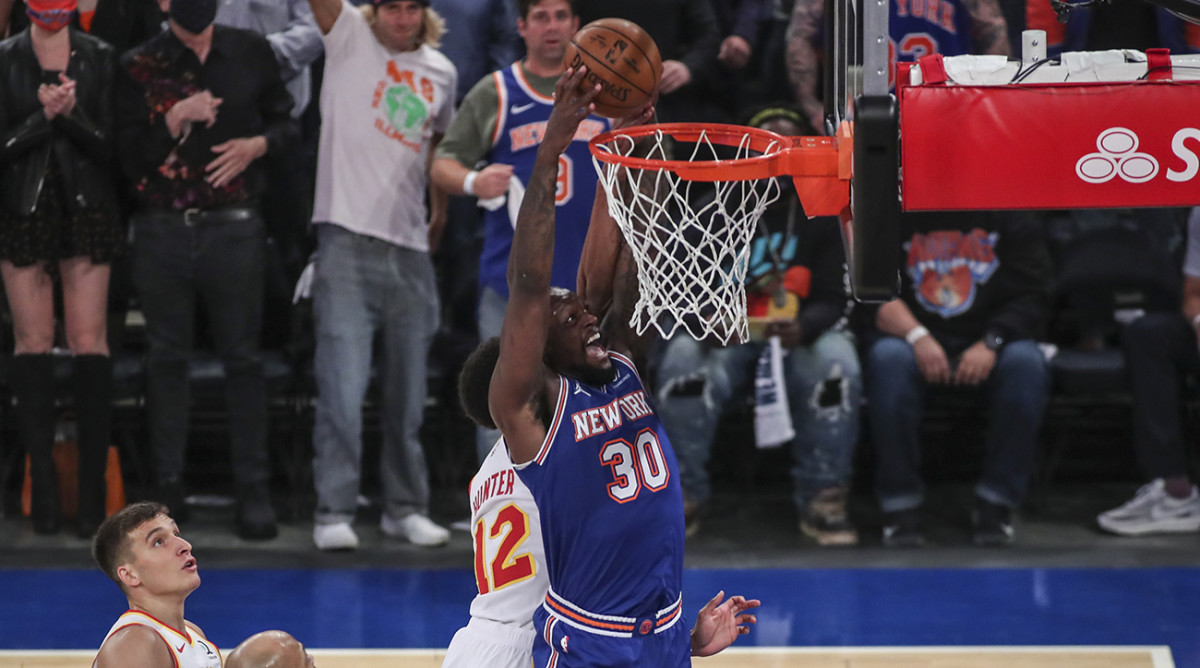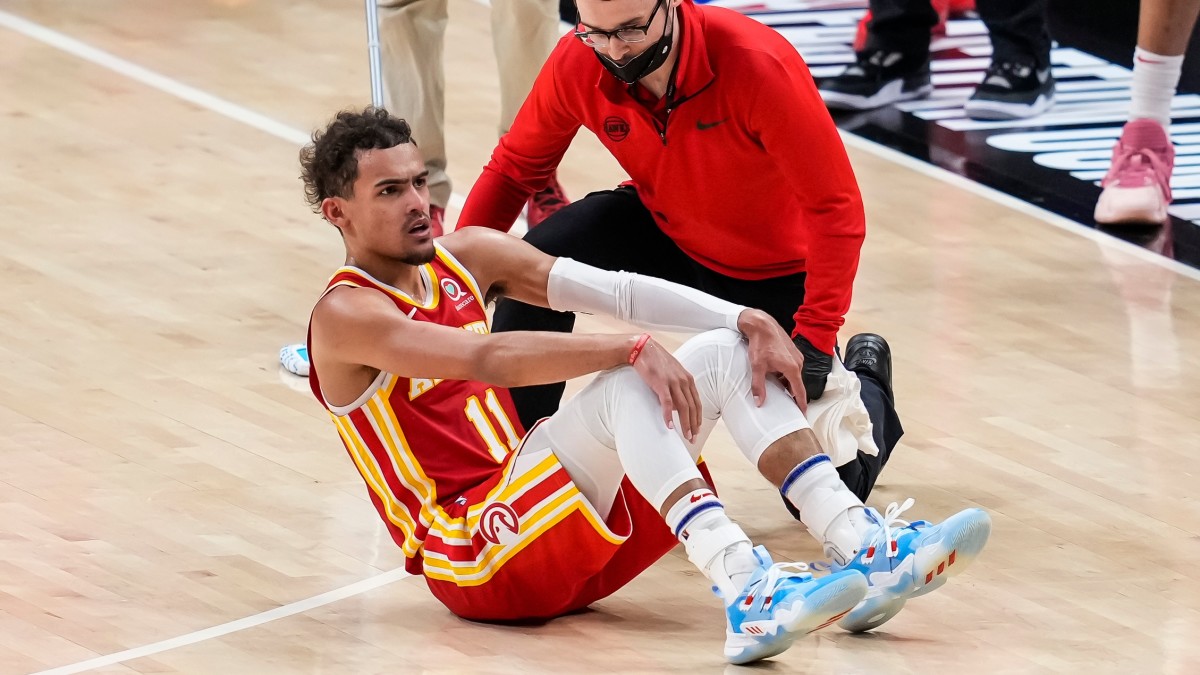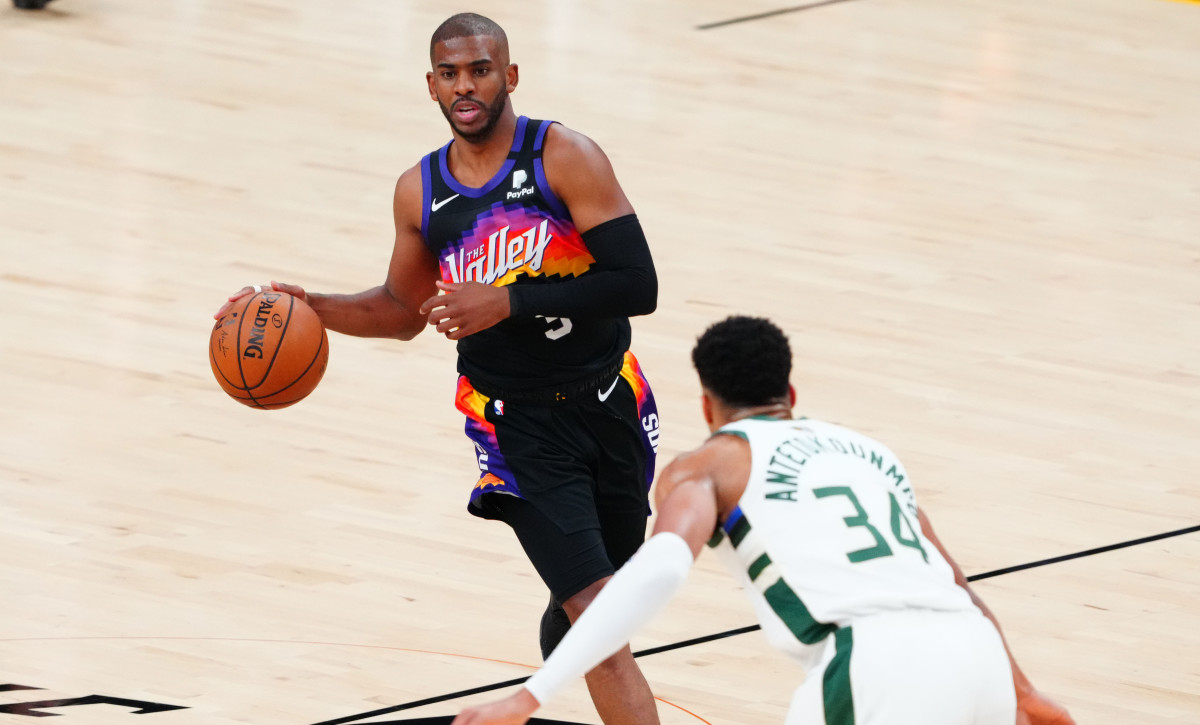NBA Mailbag: Was This A Fluke Season For The Knicks?

With the Finals and the Draft complete, and a massive trade involving Russell Westbrook out of the way, we can turn our attention to the whirlwind that is free agency, and all that comes with it.
In anticipation of that period beginning on Monday evening, I asked readers and followers to send along the questions they have on their mind. I did my best to answer a few of them here. (Thank you in advance for those who took the time to submit them.)
New York Knicks
Was this a fluke season for the Knicks? (The Kid Mero) And what available free agent would best complement someone like Julius Randle? (Frank Drummond)
The easy answer is no: this past Knicks’ playoff season wasn’t a fluke, even though the roster was largely the same as the year before, when they went 21-45.
Some will suggest that it was, citing the illness and injury plagued season, full of disruptions that allowed more of an opening for teams perceived to be less talented. (New York had a handful of issues like those, too. Aside from starting center Mitchell Robinson missing more half his games and being out from late March to the end of the season, Derrick Rose—easily one of the most valuable Knicks, despite coming off the bench—missed three weeks with the virus in March.)
I’ve long believed that teams that are well above average on defense (but subpar or merely mediocre on offense) will generally fare better in the regular season than teams that are well above average on offense, but poor or mediocre on D. The reason: A team can better control its effort and defensive rotations than it can its jumpshots, which will very from game to game.
For much of the past decade, the Pacers played the same way: Suffocating on defense, but a struggle bus much of the time on offense. (RJ Barrett struggled in the postseason and Julius Randle looked like an impostor for much of the team’s first-round loss to the Atlanta Hawks.) Playing with that exhausting level of effort for an entire regular season will often be enough to get you to the playoffs. But without another gear—or more scoring variety when things tighten up—it may be a short stay in the postseason.
So who should the Knicks target to try and take the next step? After seeing Elfrid Payton falter as the starter, and watching coach Tom Thibodeau extend the injury prone Rose’s minutes out of necessity during the playoffs, who should the Knicks target?
There’s been plenty of NYK chatter—a report from The Athletic’s Shams Charania—concerning Cavs point guard Collin Sexton, a talented scorer who competes hard and is an underrated passer. He falls solidly within the age range of the team’s young core. But what assets would the team have to part with to get him? And is it worth those assets and the max or near-max deal it would likely take to lock him in long term a year from now, when his contract is up?
If they determine the price of going that route is too steep, you could see the Knicks end up making runs at some of the more veteran point guards on the market.
Assuming Chris Paul will stay in Phoenix, players like Kyle Lowry and Mike Conley will be on the market. (Although the Jazz just maneuvered to clear space for Conley by trading center Derrick Favors and the $10 million he’ll make this season to Oklahoma City.) If you’re New York, you obviously don’t want to go too high in terms of salary—Dallas sounds prepared to pay Lowry a ton—and if you do, you’d prefer to keep the deal shorter; perhaps just two years, if possible, since members of the core will be due paydays soon.
At the same time, you’re looking for a well-rounded table-setter who can score enough to relieve some of pressure off Randle and Barrett. Spencer Dinwiddie can get you baskets, but will be coming off injury (and hasn’t exactly endeared himself to the Knicks players and fans). Lonzo Ball’s shooting has improved, and he’s a fantastic distributor, but, from the Knicks’ perspective, may not be aggressive enough as a scorer to be worth the long-term money he’ll command.
A name that deserves more attention in this conversation: DeMar DeRozan.
No, he’s not a pure point. But people overlook how good a passer he’s become in recent years, while still being a dynamite scorer from inside the arc. All while being younger than the best free-agent floor generals on the market. He would probably become the Knicks’ best scorer, too.
Would almost make too much sense.

Atlanta Hawks
Should ATL match whatever offer RFA John Collins gets, no matter how much $? And if you can only keep two of Huerter/Hunter/Reddish, which are you keeping? (David Goldstein, via email)
What would the Hawks have to trade to get Beal? And could it work on defense? (Kal_EL292)
The Hawks have one of the more interesting paths forward of any team, beginning with their decision on forward John Collins, who is a restricted free agent. The question, of course, is whether someone will throw a max offer sheet at the 23-year-old, who averaged 17.6 points and 7.4 rebounds while shooting 55.6% from the field and 39.9% from three.
He’s a key piece for a young Atlanta team, which surprisingly reached the Eastern Conference Finals and came within two wins of a NBA Finals berth. But it’s also a team that’s set to become very expensive all of a sudden. Trae Young will obviously be deserving of a max deal. Kevin Huerter is in line to be a restricted free agent next year, and would likely command big money. De’Andre Hunter is a dynamite wing scorer and defender, and his restricted free agency would come just one year later, in 2023, when Cam Reddish could also be in line to get paid.
Keep in mind: The Hawks already shelled out enormous cash last summer, when they brought in Bogdan Bogdanović, Danilo Gallinari, Rajon Rondo and Kris Dunn. It was certainly a lot for a ball club that, before this year, had long struggled to draw fans to the games in big numbers.
Owner Tony Ressler was upfront pretty recently about the fact that it would be difficult to keep this team together. Last season’s spending brought about results, without question. But continuing to spend on the same core may not keep up that trend. And identifying a proper pecking order after Young is something they’ll need to do, starting with Collins’s money.
Letting him walk for nothing at all would be a tremendous blow. (The Hawks were able to nab Bogdanovic after Sacramento opted to let him walk.) It’s not often that 6-foot-9 guys are born with the ability to hit 40% of their threes while also playing solid defense. Just a season ago, he averaged 21.6 points and 10.1 boards.
Our guess here: If someone opts to max Collins, the Hawks match, if only to avoid losing him for nothing. And depending on how things go—both with the team, and with Collins’s production—Atlanta could look to deal him later on down the line.
Beyond the question of Collins, as it relates to pecking order: For now, I think it should be Hunter, Huerter then Reddish. All three have been dazzling at times—Reddish has loads of potential, and was lights-out with 21 points in the Hawks’ season-ending loss to Milwaukee—but Reddish has been less consistent offensively, with fewer of those moments than the other two.
With so many young, intriguing pieces, though, the Hawks could likely piece together one of the league’s more intriguing packages for someone like a Bradley Beal, a player that would give them a legitimate second star to pair with Young, while also slimming down the number of young, talented players who’d need to be paid as such going forward.
But aside from the fact that Beal sounds as if he’s not looking for a way out in Washington at the moment, Atlanta’s backcourt defense would be a challenge to say the least. (The team’s defensive frontcourt is solid, though.)
Just as challenging perhaps: The Wizards, or any other team with a star-level talent itching for new scenery, might not want to take on a couple of players who are set to become far more pricey in the next year or two, even if it means getting solid talent—and a handful of draft picks—along with them. Because they’d go from undervalued assets to ones that clog the cap a bit more.

Phoenix Suns
Is Chris Paul facing more pressure than anyone to nail this FA period? (SwitHBeAtZ) Is Andre Drummond a logical fit for PHX? (Lamar Battle)
To the first question: Sure, in a broad sense, Drummond fits one of the things the Suns need, in that he’s a very good offensive rebounder.
The lack of offensive rebounding—hell, the lack of defensive rebounding, too—was one of the clearest reasons Phoenix lost the NBA Finals to the Bucks. The Suns got eaten alive whenever Deandre Ayton went to the bench; particularly after Dario Šarić was forced out with an ACL tear.
Realistically speaking, though, Drummond will likely make too much for a team like the Suns to make a run at him. He’ll surely get a haircut from a salary standpoint. But between what Phoenix would likely end up committing to Chris Paul—and the pending paydays for players like Ayton and star role player Mikal Bridges—Phoenix will have other, cheaper contributors to choose from. Someone like JaVale McGee could serve as Ayton’s backup there and do just fine.
On the question of Paul, I don’t think it’s possible for him to be facing more pressure than he did this time last year, when he pushed to be traded to a team that hadn’t reached the postseason in 11 years. It was a hell of a bet that paid off more than any of us would have guessed—and seemingly paid enough dividends to where it would make sense for him to stay put there.
Paul’s always had a good nose for clubs he could help take the next step. That was the case with the Harden-era Rockets, and it was undoubtedly the case with the Suns this past season. So if Paul were to go elsewhere now, chances are it would be to join a competitive team in need of a key piece. But again: as long as Phoenix is willing to open its wallet for the next couple years, it’s hard to see why Paul would leave a young, growing team that just made the Finals.
The 36-year-old obviously wants to win a ring, but there aren’t that many teams that can roll out way more top-end talent than the Suns possess. Which seems like a reason to stay.

Ben Simmons and the Brooklyn Nets
Would it make sense to swap with Philly for Simmons by giving up Dinwiddie (in a sign-and-trade) and Joe Harris? (Lionel Pomerantz, via email)
If I’m Brooklyn? Not really.
For starters, if I’m in the Nets, I’m not looking to add any more big-money players, as it merely thins the rotation even more. I think it goes without saying that Brooklyn wins the Milwaukee series—and likely the conference—if not the Kyrie Irving and James Harden injuries.
I’m not really sold that having Simmons or a Simmons-type would’ve made the difference there. Truthfully, all the Nets need to do is stay relatively healthy, and they look to be in great shape. So I’d guard against the idea of a deal of that magnitude, even though Simmons would improve their defense. (Their defense wasn’t problematic in the postseason, when it mattered most.)
A deal like this would potentially make far more sense for the Sixers, who can always use more traditional ball-handling and perimeter shooting.
Dinwiddie may show rust as he returns from his ACL injury, and Joe Harris was vastly underwhelming in the conference semifinals. But both would figure to be solid rotational fits for the Sixers.
That said, who the hell knows what will actually move the needle for Daryl Morey and the Sixers to unload Simmons? ESPN’s Adrian Wojnarowski reports the Sixers are setting their initial asking price at a superstar level; “Harden-esque,” he called it.
We’d all be wise to keep in mind that the Rockets themselves opted against taking Simmons for Harden earlier this year. Simmons is incredibly talented, yet—as we saw in the postseason—isn’t of that caliber. Morey knows that, too, which is why Philly is looking to trade Simmons elsewhere. Still, you can’t blame him for trying to drum up a market. That’s his job.
Just don’t expect the Nets to be involved on any talks there. If they’re healthy, they can win without adding what would be a fourth maximum salary to their roster.
More NBA Coverage:
• Why Cade Cunningham Is the No. 1 Pick
• Which Team Should Trade for Damian Lillard?
• 2021 NBA Free Agency: Ranking the Top 50 Players
• Rockets Chart Path Forward With Jalen Green, International Prospects
